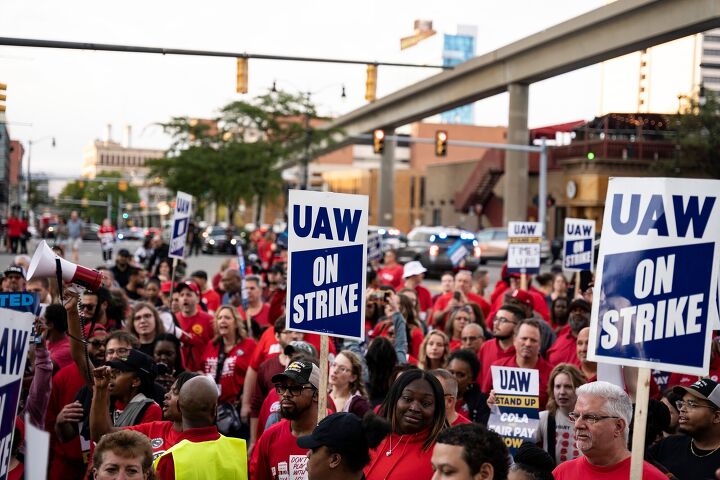QOTD: Striking Out

Today's QOTD is an easy one -- what, to you, would be a fair deal between the UAW and the automakers?
For the sake of myself and our moderators, please spare us personal attacks and irrelevant rants. Please don't tell us how much unions suck or how overpaid the CEOs are. The question is about what a fair deal would be. For example -- the union initially asked for a 40 percent raise before backing down to 36 percent. The OEMs are offering 20 percent -- so would be 30 be a fair compromise? 28?
Keep it civil, keep it on topic, and play nice.
Now sound off below.
[Image: Luigi Morris/Shutterstock.com]
Become a TTAC insider. Get the latest news, features, TTAC takes, and everything else that gets to the truth about cars first by subscribing to our newsletter.

Tim Healey grew up around the auto-parts business and has always had a love for cars — his parents joke his first word was “‘Vette”. Despite this, he wanted to pursue a career in sports writing but he ended up falling semi-accidentally into the automotive-journalism industry, first at Consumer Guide Automotive and later at Web2Carz.com. He also worked as an industry analyst at Mintel Group and freelanced for About.com, CarFax, Vehix.com, High Gear Media, Torque News, FutureCar.com, Cars.com, among others, and of course Vertical Scope sites such as AutoGuide.com, Off-Road.com, and HybridCars.com. He’s an urbanite and as such, doesn’t need a daily driver, but if he had one, it would be compact, sporty, and have a manual transmission.
More by Tim Healey


































Comments
Join the conversation
Just remember that the so-called profits are first and foremost payable to the stock and bondholders and then used to finance R&D to meet the tech requirements of the current administration. Profits are not just piled up (unless you are Apple)
The relationship between employer and employee is none of my business in this case so long as if they make unsustainable choices I’m not forced to bail them out again.
22% total (5.5% yr. over 4 years) is in line with national annual compensation increase averages. 40 hour M-F work week. No pension, but contributions to a 401k plan could be discussed. Temp (flexible) labor stays as that's the buffer for the company between full production and layoffs when business wanes. Entry level wage tiers remain as well although timing of advancement can be looked at. Obviously a new employees does not produce at the same level as an experienced and tenured employee. Take it or leave it.
4-5% per year, retroactive to when the contract expired.